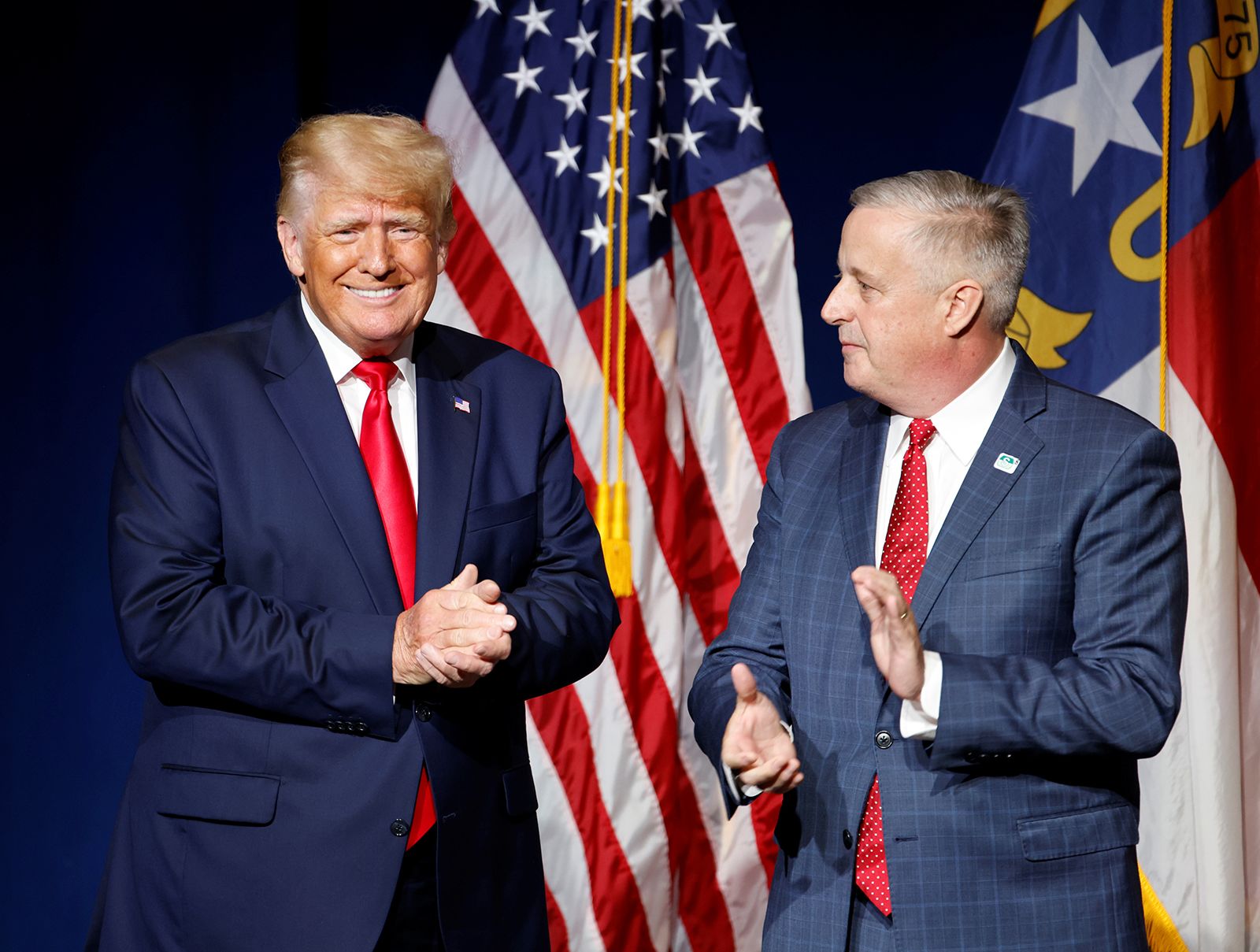Despite not yet securing the 2024 Republican presidential nomination, Donald Trump is already working to reshape the national party’s structure to align with his vision for the general election and beyond. The former president has expressed interest in aligning the Republican National Committee (RNC) more closely with his campaign, building a team focused on election fraud, and enhancing its fundraising capabilities during a period of financial hardship for the committee.
Earlier this month, Trump publicly endorsed Michael Whatley, the RNC’s general counsel, alongside Lara Trump, his daughter-in-law, as co-chair of the RNC. Trump also plans to appoint senior adviser Chris LaCivita as chief operating officer. The new leadership is expected to boost the RNC’s fundraising efforts, which are currently lagging behind the Democratic National Committee’s (DNC) $24 million in available funds, with the RNC only having $8.7 million on hand.
Whatley’s intense focus on election fraud claims has earned him Trump’s endorsement. As the chairman of the North Carolina Republican Party for nearly five years, Whatley has built a reputation as a loyal party figure who appeals to both Trump and establishment Republicans. His efforts to ensure election security, including building a team of poll watchers and lawyers for the 2022 midterms, have been widely recognized.
However, Whatley’s ambitions extend beyond North Carolina. In 2023, he ran for co-chair of the RNC, backed by Trump, but fell short and placed third. Despite this, he is the leading candidate to succeed current RNC Chairwoman Ronna McDaniel, who has offered to step down after the South Carolina primary. Trump’s dissatisfaction with McDaniel stems from his belief that the RNC did not have the right attorneys to challenge the 2020 election results.
While Whatley’s potential role as RNC chairman will focus on election integrity, he will also need to address the committee’s fundraising issues. Some Republicans have expressed concern that Whatley, relatively unknown on the national stage, may lack the experience to attract high-dollar donations. If Whatley and Trump’s team succeed, the North Carolina Republican will face the challenging task of boosting the RNC’s finances, which currently lag behind the DNC’s.
Despite these challenges, Trump’s endorsement of Whatley and Lara Trump makes it difficult for RNC members to vote against them. However, there are concerns at the state level about the potential impact of Whatley’s departure on the North Carolina Republican Party.

